Editor's note
|
|
The Barnaby Joyce affair has been occupying most of us in the media of late – and even many outside of it. But how much better it would have been, writes Denis Muller, if The Daily Telegraph had established strong public-interest grounds before breaking the story, and framed it around that. Instead, we have been given the salacious moralising that has always been a hallmark of the tabloid media – a kind of new moralism that harks back to the 1950s.
Meanwhile, in tit-for-tat press conferences, Malcolm Turnbull announced a ministerial sex ban and Joyce dug in. And there’s no sign of it ending any time soon.
|
Amanda Dunn
Section Editor: Politics + Society
|

|
|
Politics + Society
|
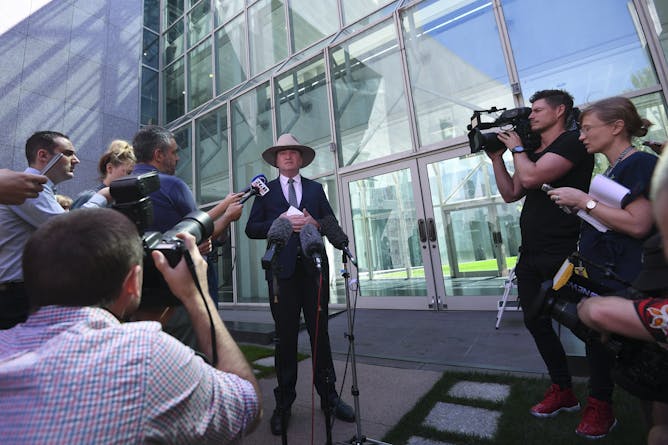
The Barnaby Joyce saga has been an example of ‘shake-the-tree’ journalism at its worst.
AAP/Lukas Coch
Denis Muller, University of Melbourne
Media reporting of the Barnaby Joyce affair would have been so much better if journalists had established substantial public-interest justifications before breaking the story.
|
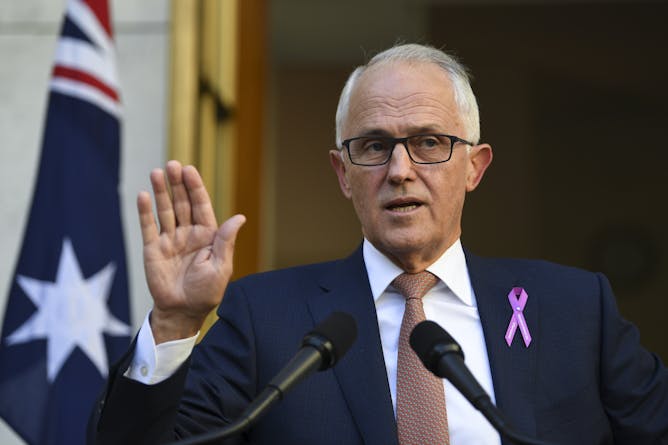
Malcolm Turnbull gave several justifications for his ban on ministers having sexual relationships with their staff.
AAP/Lukas Coch
Paula McDonald, Queensland University of Technology
Banning relationships is likely to be ineffective and may result in disengagement, secrecy and resentment by employees of the encroachment of employment policies into genuinely private matters.
|
Winter Olympics
|
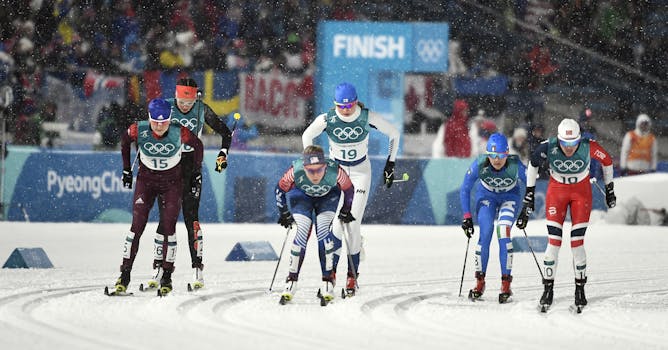
Temperatures in Pyeongchang fall below -10℃ at night.
EPA/Filip Singer
Kevin Netto, Curtin University
Here's how athletes at the Winter Olympics are able to perform in extreme cold.
|
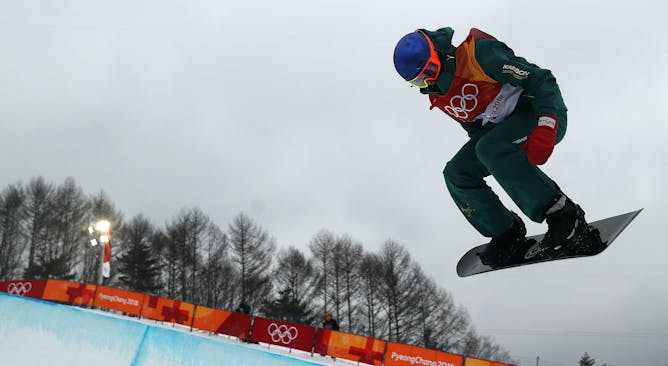
Scotty James became the second Australian in Winter Olympic history to win a medal in the snowboard halfpipe event.
EPA/Fazry Ismail
Jade Haycraft, Victoria University
Halfpipe snowboarders like Scotty James may seem laid-back and relaxed, but they are subjected to high physical load and fatigue induced by training and competition.
|
Health + Medicine
|
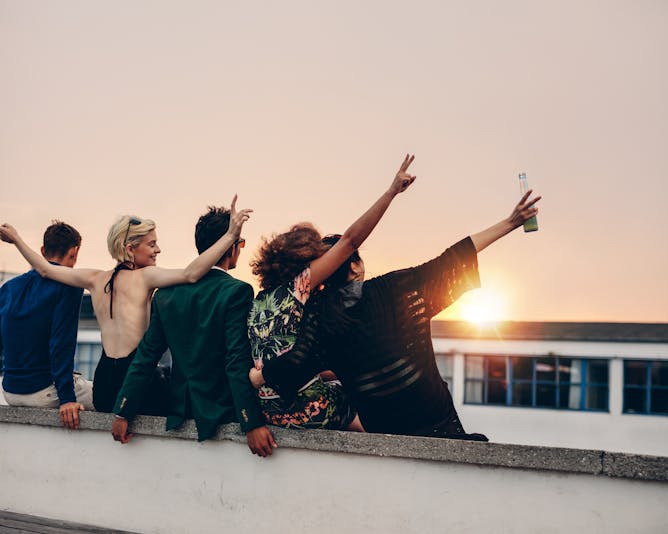
Generally people drink to either increase positive emotions or decrease negative ones.
from shutterstock.com
Emmanuel Kuntsche, La Trobe University; Sarah Callinan, La Trobe University
There are many reasons people drink, including to have fun or cope with other problems. Knowing their motivations will allow us to tailor programs to help those who may struggle with alcohol use.
|

No, being thin doesn’t mean you can live off junk food.
from www.shutterstock.com
Alessandro R Demaio, University of Copenhagen
Most people assume the only reason to eat healthy foods is to stay slim. But being slim doesn't mean you're healthy, and doesn't mean it's OK to eat junk.
|
Business + Economy
|
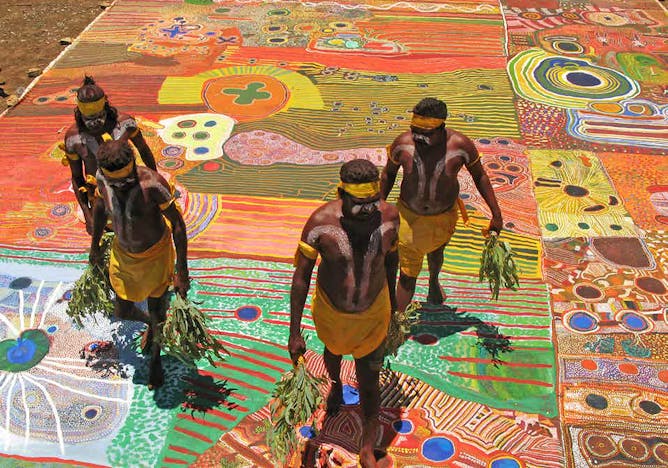
The Closing the Gap targets miss out on other aspects of economic well-being.
AAP
Zoe Staines, Queensland University of Technology
Australia is on track to meet its 'Closing the Gap' employment target, but more than a decade late.
|
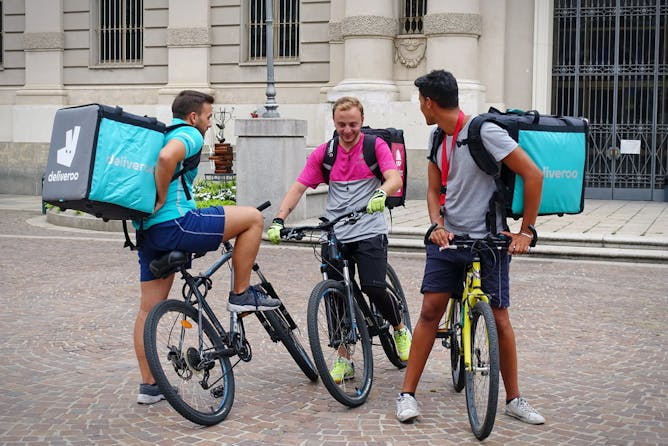
Many gig workers are classified as independent contractors.
AAP
Michael Rawling, University of Technology Sydney; Sarah Kaine, University of Technology Sydney
Many gig workers are classified as independent contractors, leaving them without minimum wages and other workplace protections. Creating a new category of worker could fix that.
|
Education
|
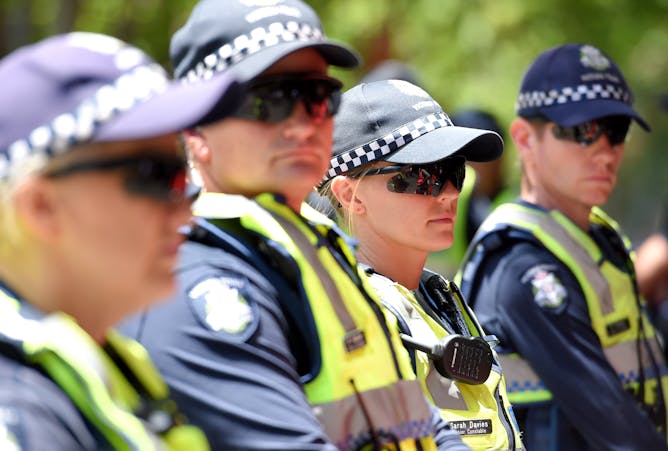
Research has found police in schools programs can work, where the focus is on the safety and education of young people.
Aap/Tracey Nearmy
Katherine J. McLachlan, University of South Australia
Tough-on-crime models of policing students don't reduce youth crime, but community engagement programs for at-risk youth can be beneficial.
|

By the time young people get to university, it’s far too late to be initiating education on sexual consent.
Shutterstock
Bianca Fileborn, UNSW
Some Australian universities have introduced a one-off sexual consent program to combat sexual assault and harassment on campus, but one-off programs are unlikely to be effective in the long term.
|
FactCheck
|
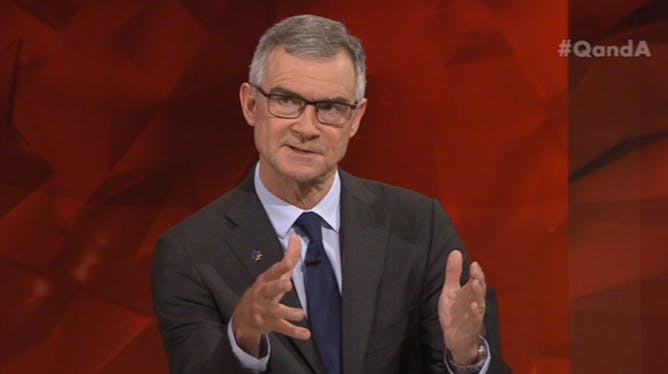
Australian Chamber of Commerce and Industry chief executive James Pearson, speaking on Q&A.
ABC Q&A
Janine Dixon, Victoria University; Jason Nassios, Victoria University
On Q&A, Australian Chamber of Commerce and Industry chief executive James Pearson said almost 60% of small business owners in Australia are paid $50,000 or less. Is that right?
|
Podcasts
|
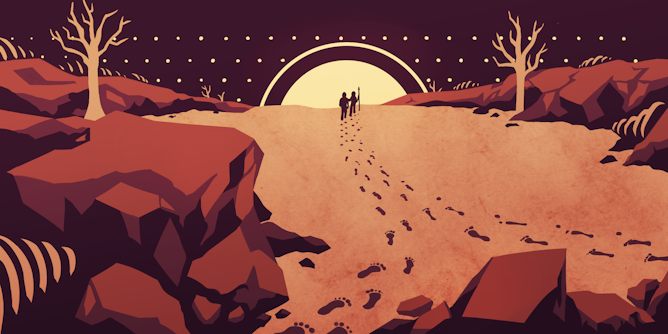
In July 2017, new research was published that pushed the opening chapters of Australian history back to 65,000 years ago.
Marcella Cheng/The Conversation
Sunanda Creagh, The Conversation
Today's episode of Essays On Air, the audio version of our Friday essay series, seeks to move beyond the view of ancient Australia as a timeless and traditional foundation story.
|
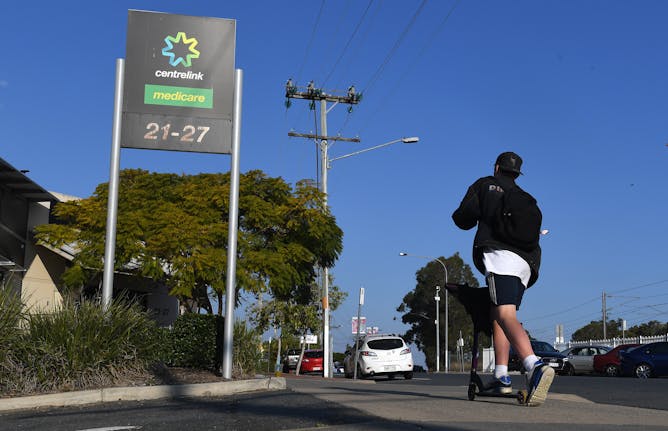
Dave Hunt/AAP
Michelle Grattan, University of Canberra
Brian Howe says the targeted nature of Australia's social security system goes hand-in-hand with stigmatising welfare recipients.
|
Cities
|
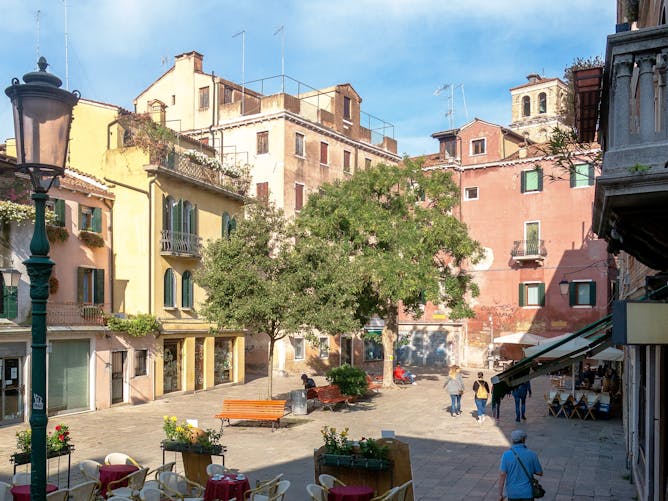
Campo Santa Maria Nova, in Venice, is a fine example of a compact, human-scale European plaza.
Dina Bacvic
Dina Bacvic, University of Melbourne
Done right, a plaza can bring life and a sense of identity to an area. So why has urban design in Australia neglected the town square in favour of green space, and what makes for a successful one?
|

Four major disruptions of urban transport are set to transform city life, but exactly how remains uncertain.
Taras Makarenko/Pexels
Jake Whitehead, The University of Queensland; Michael Kane, Curtin University
Self-driving, shared, electric vehicles and increasing urban density represent four disruptions that will transform city life. But a transport utopia isn't a guaranteed outcome of their interactions.
|
Environment + Energy
|

The Darling River near Menindee, NSW.
Tim Keegan/Wikimedia Commons
Quentin Grafton, Crawford School of Public Policy, Australian National University; John Williams, Australian National University
New South Wales has pledged to walk away from the Murray-Darling Basin Plan, while Victoria's water minister has declared the plan 'over'.
|
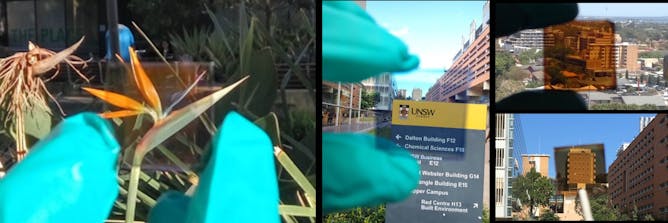
Looking through semitransparent cells – one day these could be big enough to make windows.
UNSW
Matthew Wright, UNSW; Mushfika Baishakhi Upama, UNSW
Solar windows would need to trap enough light to generate power, while letting through enough to keep buildings light. Thankfully, newly developed semitransparent cells offer to do just that.
|
Arts + Culture
|
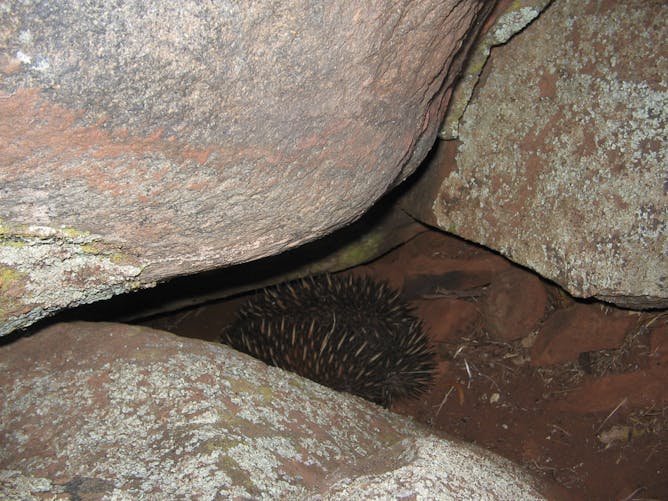
An echidna in the Western Granites at Jam Tree Gully.
John Kinsella
John Kinsella, Curtin University
On his bush block in the WA wheatbelt, poet John Kinsella attempts habitat restoration and reflects on the responsibilities of the writer as a witness to species loss.
|
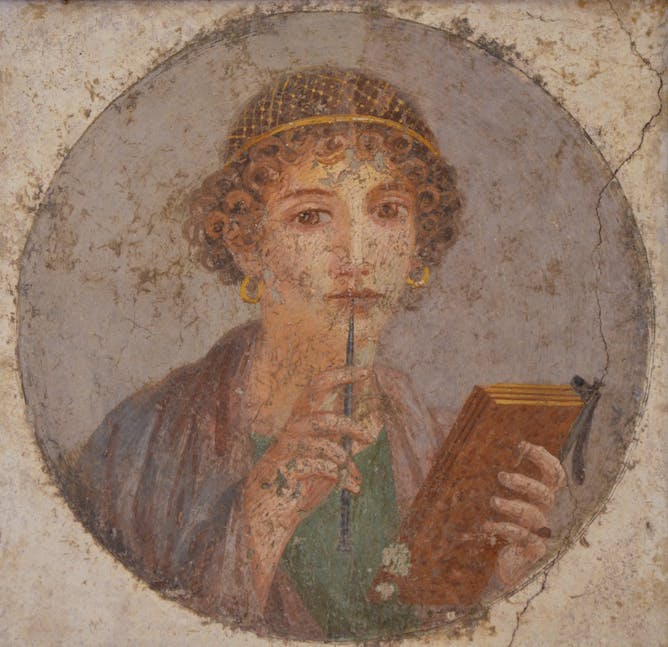
Fresco showing a woman called Sappho holding writing implements from Pompeii Naples National Archaeological Museum.
Wikimedia Commons
Marguerite Johnson, University of Newcastle
Sappho sang of desire, passion and love – mostly directed towards women. As new fragments of her work are found, a fuller picture of her is emerging, but she remains the most mysterious of ancient poets.
|
Science + Technology
|
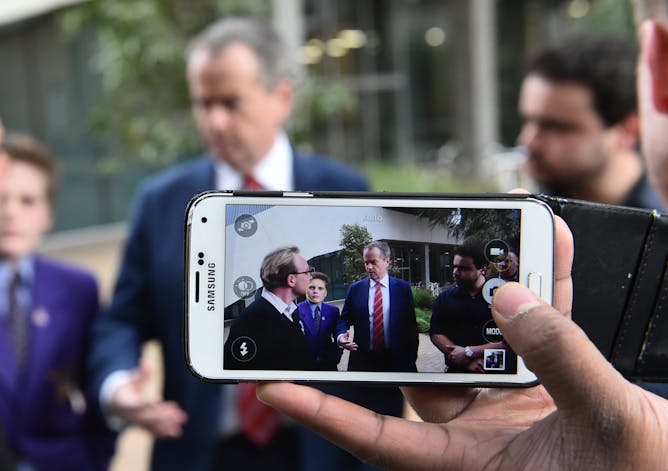
Social media is a double-edged sword for politicians.
Julian Smith/AAP
Denis Muller, University of Melbourne
As politicians grapple with the fall-out from social media missteps, the public turns back to traditional media for trustworthy news.
|

Today’s sharks are known to use electroreception to find their prey.
Shutterstock/solarseven
Benedict King, Flinders University; John Long, Flinders University
Many living vertebrates have the ability to detect electric fields, especially in other animals when hunting. But what can the fossil record tell us about the origins of this sensory system?
|
| |
Featured jobs
|

|
University of Western Australia — Perth, Western Australia
|

|
Western Sydney University —
|

|
University of Melbourne — Parkville, Victoria
|

|
|
|
|
|
| |
| |
| |
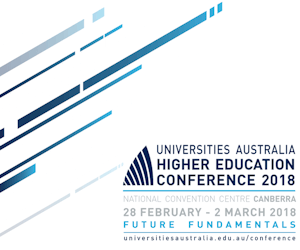
|
| |
| |
| |
Featured events
|

|
Eastern Avenue Lecture Theatre 315, Eastern Avenue, The University of Sydney, Sydney, New South Wales, 2006, Australia — University of Sydney
|

|
The Deakin Edge Theatre, Cnr Flinders and Swanston Streets, Melbourne, Victoria, 3000, Australia — Deakin University
|

|
M263, 35 Stirling Hwy, CRAWLEY, Perth, Western Australia, 6009, Australia — University of Western Australia
|

|
Deakin Downtown, Level 12, Tower 2 Collins Square, 727 Collins Street, Docklands, Victoria, 3008, Australia — Deakin University
|
|
|
|
| |
| |
| |
| |
| |
|
|